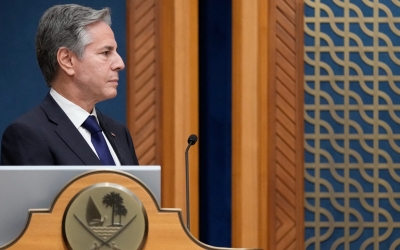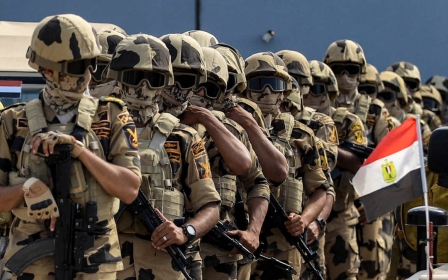Israel-Palestine war: Senior CIA official posts, then removes Pro-Palestine content

A senior official at the CIA posted a pro-Palestine photo on her Facebook page amid Israel’s bombardment of the Gaza Strip but later deleted the post and other pro-Palestinian content after it was reported by the media.
The Financial Times reported on Tuesday that the CIA associate deputy director for analysis changed her Facebook cover photo on 21 October to an image of a man waving a Palestinian flag.
The official also published a selfie with a sticker saying “Free Palestine” superimposed on the photograph, which the Financial Times reported was posted to Facebook years before the ongoing war, citing an unnamed person familiar with the image.
The images were deleted on Monday after the Financial Times contacted the official, the report said.
Middle East Eye reached out to the CIA associate deputy director for analysis on LinkedIn for comment but didn’t receive a reply by the time of publication.
While CIA officials like those in the directorate of operations mainly work undercover with their identity obscured, others who provide analysis for the agency can have a more public profile.
It is extremely rare, however, for officials working in government intelligence, particularly senior officials, to share their political views on current events.
The associate deputy director for analysis at the CIA reviews and studies the raw intelligence that field officers collect from foreign sources abroad. That intelligence goes into a highly classified document known as the President’s Daily Brief, which the US leader receives almost daily.

The revelation that a senior US intelligence official was posting images widely seen as supportive of the Palestinian cause comes at a sensitive time for the Biden administration, which has faced pushback from officials over its unconditional support for Israel.
Middle East Eye reported in October that State Department officials had penned dissent cables calling for the US to push Israel for a ceasefire.
The Biden administration’s stance has also pitted senior officials within the National Security Council against younger staffers, particularly those from diverse backgrounds, who have expressed concern over the support to Israel.
A former US official was recently filmed advocating for killing Palestinian children.
New York police arrested Stuart Seldowitz, a former US State Department official, earlier in November after he was captured on video calling an Egyptian halal food street vendor a terrorist and saying the death of 4,000 Palestinian children "wasn't enough”.
Seldowitz was deputy director in the US State Department's Office of Israel and Palestinian Affairs. He was later National Security Council advisor to President Barack Obama.
The Financial Times report is notable because it is the first to suggest that a senior US official within the intelligence community has expressed pro-Palestinian sentiment since the outbreak of war on 7 October.
The CIA prides itself on being apolitical and delivering unbiased intelligence to the US president regardless of the political views of its officers and staff. It is extremely rare for a senior intelligence officer to make personal political statements.
The disclosure comes as the head of the spy agency, Bill Burns, takes on a leading role in managing the administration’s response to the conflict.
The CIA director has met with leaders from Egypt, Jordan, Israel, and Gulf states to discuss Israel’s battle plans and the release of hostages. On Tuesday, he was in Doha for talks with his Israeli counterpart and Qatari officials serving as mediators with Hamas.
Middle East Eye propose une couverture et une analyse indépendantes et incomparables du Moyen-Orient, de l’Afrique du Nord et d’autres régions du monde. Pour en savoir plus sur la reprise de ce contenu et les frais qui s’appliquent, veuillez remplir ce formulaire [en anglais]. Pour en savoir plus sur MEE, cliquez ici [en anglais].




